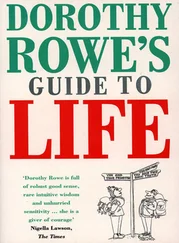Inside the prison we are cut off from every other person. We know that we are physically with other people, but what we actually experience is a barrier between them and us. They offer us love, comfort and support, but nothing crosses the barrier to warm, cheer and support us.
Nor do we think it should. We know that we are wicked and do not deserve what people offer us. What we do deserve is this terrible, hateful prison.
Inside that prison our thoughts are not the thoughts that usually accompany pain (usually ‘Ow!’ and ‘Help!’) and discomfort (usually ‘Yuk!’, ‘Groan!’ and ‘Help!’). Our thoughts are concerned with universal moral issues expressed in a personal way, variations of, ‘I ought to have been a better person’: ‘I ought to have done more for other people’, ‘If I had been a better person I would not have been abandoned and betrayed’, ‘I must be wicked, otherwise these disasters would not have happened to me’, ‘I have obligations which I cannot meet’, I have made unforgivable mistakes’, ‘I cannot forgive myself for what I have done’, ‘No one, not even God, could forgive me for what I have done’. With these feelings come the helpless, hopeless feelings of dread.
Inside the prison of depression we cannot escape from the turmoil of these moral issues, for everyone we meet, every newspaper story and television scene, reminds us of our unmet obligations, our unfulfilled duties, our inadequacy and sense of intrinsic evil. We cannot endure this isolation, but we fear other people, and feel that, we must shut ourselves away. We long for death, but fear the aloneness of death and the punishments which could lie beyond it.
Alone though we may feel in the prison of depression, we are not alone in enduring such an experience. Across the planet, many millions of people are trapped in the prison of depression.
If you are reading this book then it is likely to be for one or more of the following reasons:
You are depressed
or
Someone you care about is depressed
or
In your work you have to deal with people who are depressed.
In order to find out about depression you have, perhaps, read articles on depression in newspapers and magazines. You might have read about depression in psychiatric textbooks or in books written for the public by psychiatrists and psychologists. You might have consulted your doctor, or a psychiatrist, or some other professional person. You might have consulted your minister, or perhaps a spiritualist or a faith healer, or tried one of the alternative therapies like homoeopathy or acupuncture. You might have talked to a therapist or counsellor.
You might have been told a great many things about depression, but out of all these sources one message has been given to you loud and clear. ‘Depression is a genetic illness. It cannot be cured, but it can be controlled by drugs.’
This message seems simple, but in fact it leaves you even more confused and frightened.
Somehow, this explanation doesn’t seem right. You can see how bodily diseases like haemophilia and cystic fibrosis could be passed on by a gene, but how could depression – this confusion of feelings, beliefs, passions, fears, wishes, actions and non-actions-be caused by a gene? You have seen how people who have inherited some disease can, provided they care enough about themselves, have friends and family to support them, and get good medical advice, rise above their disease and get on with their lives , whereas it is not possible for you to separate yourself from your depression. It seems to inhabit your very person.
Moreover, depression might seem to be inside a person, but you know that it is also between people. If you are depressed, you know that it has something to do with the people in your life. If someone you love is depressed, you know that that person’s depression has something to do with other people, and you worry about what you might do – or refrain from doing – which would change how your loved one feels. If you are trying to understand why your clients or your colleagues are depressed, you get to know them, and you see the difficulties, losses and disappointments with which they are struggling. You know that depression does not occur, in the way that haemophilia or cystic fibrosis can, to an ordinary person leading a secure and happy life. When you look at all the depressed people you know, you can see that they have, over their lifetime, suffered many difficulties, losses and disappointments, that what success they have achieved has not always brought them happiness, and that when they achieve success and happiness, they cannot enjoy them, for they believe that they do not deserve such happiness and success, that happiness and success will soon be snatched from them, and that pain must follow joy as night the day.
How could a gene create all this?
Moreover, being told that all you are experiencing is nothing but the effect of a gene dismisses all you have experienced and know as being trivial and unimportant. It doesn’t just dismiss your experience and knowledge, it dismisses you . It says that you are nothing but a defective body, carrying a defective gene, passed on to you by an equally defective ancestor, and that you are likely to pass this gene on to your children. You cannot be cleansed of this gene, but must strive to keep it in check by a daily ingestion of drugs which affect the operation of your brain.
If you are depressed, such a diagnosis does nothing to help you, for it simply makes you feel even more intrinsically bad, useless and worthless. Such a diagnosis does nothing to help the relatives of a depressed person, or indeed, any one of us, for we can all worry that at any time we shall produce the depression handed on to us by some ancestor, or that we have already, unwittingly, passed this dread disease on to our children.
However, some of you in your search to learn about depression may have read something which many psychiatrists and psychologists fail to read, namely, the actual research reports by scientists working on the problem of the biological basis of depression. Perhaps you do read the monthly issues of the American Journal of Psychiatry and the British Journal of Psychiatry , or the heavy tomes of the American Psychiatric Review.
If you do, you will know that the sentence ‘Depression is a genetic illness’ is a statement of a wish , not a fact. A hundred years ago the German doctor Kraepelin attributed the behaviour of some of his patients to the illness ‘manic-depression’, and since then psychiatrists have been searching for the cause of this illness. They talk of the ‘gene for depression’ and the ‘gene for mania’, and some of them even say that such genes have been found. They talk, too, of ‘chemical imbalance’, and of physical tests for depression, and some say that the precise chemistry of the imbalance and the tests is known. However, what is described as fact is actually speculation. An enormous amount of research needs to be done before any genetic factor can be shown for certain to play a part in depression, and, from the results of the research, it seems that, if there is a genetic factor, it is one which requires the presence of many other factors – physical, psychological and social – for it to be activated. 1
One of the great difficulties of this research is that, even after a hundred years, psychiatrists still cannot agree on how many kinds of ‘depressive illnesses’ there are. 2You will probably have come across terms like ‘clinical depression’, ‘endogenous depression’, ‘reactive depression’, ‘neurotic depression’, ‘bipolar and unipolar depression’, ‘major depressive episode’, and so on. If so, you are certain to be confused, particularly when you discover that different psychiatrists give different diagnoses. One might tell you that you are ‘clinically depressed’, another that you have ‘endogenous depression’, yet another that you have a ‘schizo-affective disorder’. What you are not told is that all these words are just labels used in an attempt to put the people who get depressed into different categories. However, it does seem that, while there are certain things that depressed people do have in common, each of us gets depressed in our own individual way.
Читать дальше












